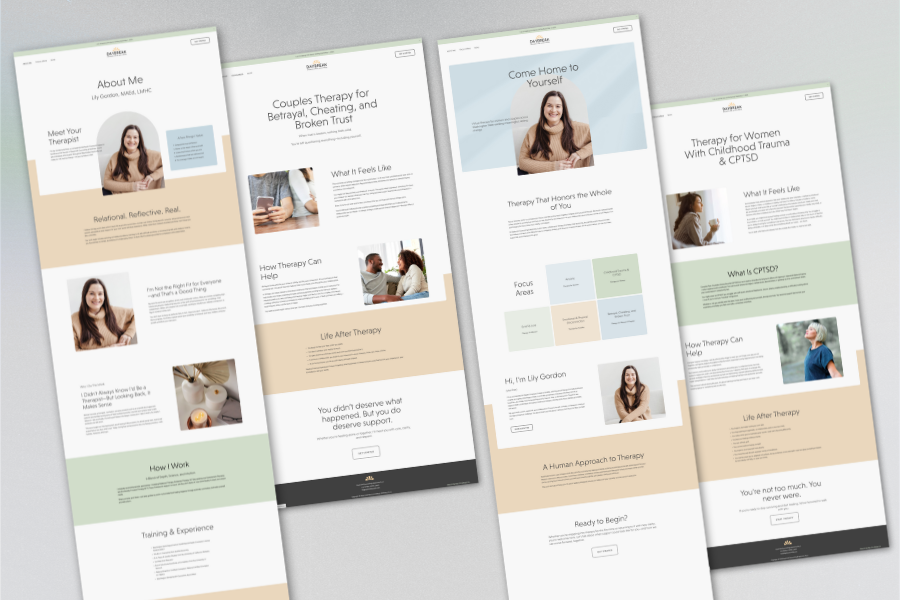Should I Start a Blog for My Therapy Practice? Will It Get Me More Clients?

Should I Start a Blog for My Therapy Practice? Will It Get Me More Clients?
If you’ve ever wondered whether blogging is worth your time as a therapist, the short answer is: it depends.
Let’s break it down.
First, should you blog at all?
Only if you enjoy writing.
If you dread sitting down to draft a post, don’t force yourself. You’ll end up with a blog that’s neglected and outdated—and that doesn’t do you or your potential clients any favors. On the other hand, if writing helps you organize your thoughts, reflect on your work, or connect with your audience, then yes, a blog can be a great addition to your website.
Will it get you more clients?
Maybe. But not just by existing.
Most therapists blog about educational topics related to their niche or ideal client. That’s great—just know that a lot of people landing on those blog posts are looking for information, not necessarily a therapist. They might read your article and then move on.
But that traffic isn’t worthless. When people spend time reading your blog, it tells Google that your site is helpful and credible. That can improve your overall SEO (search engine optimization) and help you show up higher in search results when someone is looking for a therapist.
So how can a blog help people find and hire you?
This is where strategy comes in. If your goal is to attract more clients directly through blog content, you’ll need to use keywords your potential clients are actually typing into Google.
For example, instead of titling a blog post “Why CPTSD Feels So Confusing,” consider something like “Therapy for CPTSD: What to Expect in Trauma Counseling” and include phrases like “online therapy for CPTSD,” “counseling for trauma in [Your City],” or “trauma therapist for women.” These long-tail keywords can help your posts show up when people are searching for therapy, not just general info.
A few bonus tips:
Include a clear call to action at the end of each post (like “Reach out today to schedule a free consultation.”)
Internally link blogs to other pages on your site, like other blog articles and your services pages.
Keep posts skimmable with subheadings, bullet points, or short paragraphs.
Don’t worry about posting weekly. Even a few well-written, evergreen posts can help boost your SEO over time.
Bottom line?
Blog if you like writing—and write with your ideal client in mind. Done strategically, it can become a meaningful and even enjoyable part of your marketing.

Pin it!
Some of My Favorite Private Practice Tools
Resources and Referral Links
High Five Design Co. by Emily Whitish is a design and digital marketing company in Seattle, WA. I specialize in Website Templates and custom One-Day Websites for therapists, counselors, and coaches.











































